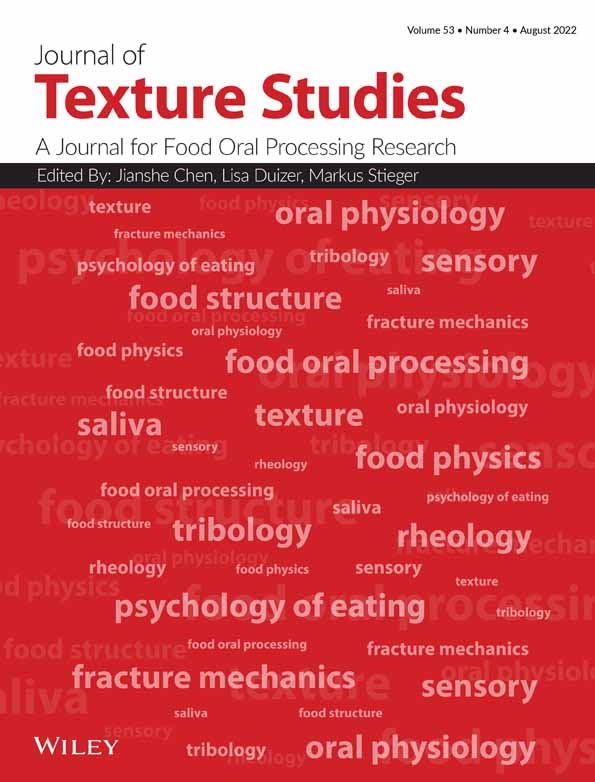Effect of α-amylase and pH on the rheological properties of thickened liquids containing starch in in vitro conditions relevant to oral processing and swallowing
This article was published on AA publication on: 12 May 2022.
Abstract
The objective of this study was to investigate quantitatively the impact of saliva on the rheological properties of thickened drinks (IDDSI level 3) with different pH. Oral digestion was simulated and followed using a rheometer. An insalivation ratio measured from spitted boli, was used in the in vitro oral digestion experiments, comparing unstimulated human saliva to artificial saliva. The initial viscosity of thickened water samples (pH 5.3 and 7.4) was reduced by 80% after only 5 s of in vitro oral digestion. A similar viscosity decay was observed with the artificial saliva. This decrease in viscosity was attributed to the breakdown of the starch granule structure by α-amylase and in a lesser extent to a dilution effect. In contrast, the rheological properties of thickened lemon drink (pH = 2.7) and thickened orange juice (pH = 4.0) were not influenced significantly by human salivary amylase. These results suggest that at these pHs, starch-based thickened drinks can maintain their initial IDDSI level, despite a strong dilution with saliva, which could help in the management of dysphagia. Clinical trials should be performed to confirm this hypothesis. Only human salivary α-amylase should be used to study products between pH 3 and 5 to imitate the structural and rheological breakdown happening before swallowing, while α-amylase from Bacillus sp. could also be used outside this range. The method developed in this study can be used to quantify the impact of food oral processing and evaluate rheological properties relevant for swallowing in the presence of saliva.
Open Research
DATA AVAILABILITY STATEMENT
The data that support the findings of this study are available from the corresponding author upon reasonable request.




